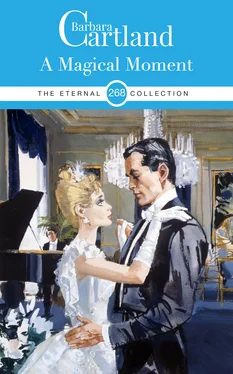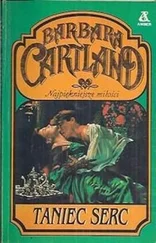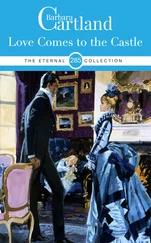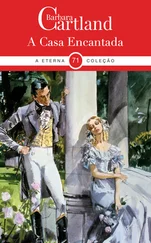When I visited the Castles of the Loire Valley in 1990, I had forgotten that Château Chaumont was the most perfect Fairytale Castle.
In the sunshine, it looked as if it might disappear at any moment.
Because it had been spared by the French Revolution, it is without exception the most exquisite Castle in France.
One can well believe that the work, which began in 1519, by King François I was said by his rival, Charles the Fifth, the Holy Roman Emperor, to be, ‘a summary of all that human industry and belief can achieve’.
Some of the rooms like the King’s Bedroom, which are furnished and unchanged, make it all the more thrilling.
The successors after François’ death showed little interest in Chaumont, preferring their Royal Palace in Paris.
Louis XIII made several trips to Chaumont before leaving it and the country to his brother Gaston d’Orleans.
The Prince, we are told, enjoyed showing his daughter, the future Grande Mademoiselle , the tricks of the famous grand staircase whose double spirals enabled two people to go up and down at the same time without ever crossing each other’s paths.
There are so many Castles to see in the Loire Valley that it is impossible to mention them all.
Chaumont gave me this story and some years ago another Castle built on the edge of the dark mysterious forest of Chinon in the Indre Valley gave me another.
I was inspired to write The Castle Made for Love about it, just as Perrault was inspired to write The Tale of the Sleeping Beauty .
The Castles of Usse and Chaumont are the two most beautiful Fairytale buildings I have ever seen.
I am sure that the other Castles one by one will become centres of romance as the years go by.
We look more eagerly than we have ever done before for the real love, which seems, for the moment lost in the obsession of the media with sex, which is not the romance for which men have fought and died for over the centuries.
“Oh, no, Papa, you cannot mean it!” Lady Lencia Leigh exclaimed.
“You promised, you promised!” her younger sister Alice cried. “How can you change your mind now at the very last minute?”
“I am very sorry, girls,” their father, the Earl of Armeron, replied, “but your stepmother has set her heart on going to Sweden and a Prince does not celebrate his seventieth birthday very often.”
He tried to make it a joke, but both his daughters were looking at him reproachfully.
They were thinking that ever since he had been married for the second time, the Earl had changed.
He was no longer the fond loving father that he had been before and was now someone who seemed to them almost a stranger.
When the Earl’s wife had died a year ago, he had sunk into the depths of despair from which, it seemed, no one would ever be able to arouse him.
It was his good friend, the Marquis of Salisbury, who had suggested that he should go with him for a holiday in France.
The Marquis had recently built himself a very large and impressive Villa near Nice in the South of France and he had said to the Earl that he wanted his expert advice in planning the garden.
Looking back at what had occurred, his daughters realised that it had been the first step towards a tragedy.
They had never for one moment ever imagined that their father would marry again.
He had adored their mother as they all had and the whole family had been very close and extremely happy together.
It had always been a disappointment to the Earl that he had no son and therefore no direct heir to inherit his title.
But he had been extremely proud of his eldest daughter, Lencia.
She closely resembled her mother, who had been an outstanding beauty.
So great was the resemblance that at first, after his wife’s death, the Earl had been almost reluctant to look at Lencia.
She had the same fair hair, the same sparkling blue eyes and the same exquisite pink and white complexion.
But Lencia also had a kind of spiritual aura about her, which made her different from all the other girls of her age.
She was also very intelligent, but that was not at all surprising considering how clever her father was.
Besides this she had a marked personality of her own that unfortunately her stepmother, the new Countess, had noticed from the moment she first stepped into Armeron Castle.
The Earl had been away from home for six weeks and they were excitedly awaiting his return and Lencia had actually received a letter from him the day before he was due to arrive.
“A letter from Papa!” she had exclaimed when the butler brought it to her.
“I hope he has not changed his mind at the last moment,” Alice said, “and intends to stay on longer in the South of France.”
“Papa must realise that there is such a lot to do here,” Lencia assured her.
She opened the envelope as she spoke.
Taking out her father’s letter, she read a little of it before she cried out,
“It cannot be true!”
“What has happened?” Alice asked at once.
Lencia looked at the letter again before she said in a voice that did not sound at all like her own,
“Papa has – married again.”
“I don’t believe it!” Alice declared.
But it was true.
And when the new Countess arrived, everything was changed.
The girls had waited for her apprehensively.
When their father appeared with his new wife clinging onto his arm, it was impossible for either of them to run towards him eagerly as they had always done in the past.
Madame Flaubert was characteristic of the exotic chic French woman. She might almost have stepped straight out of a novelette.
She was not beautiful in any way, but good-looking and she made the most of her looks.
She was amusing and witty and almost every word she spoke seemed to have a double entendre.
She flattered the Earl not only in words but with her eyes, her mouth and her hands.
Lencia realised that her father was fascinated by her because she was so different from the wife he had loved and lost.
Madame Flaubert had gone to visit Nice looking for a man to escort her.
The meeting with the Earl was a dream come true.
She had always hoped to marry again, but the Frenchmen who paid her compliments and laughed at everything she said did not offer her marriage.
She saw the Earl, morose and depressed, but at the same time still a very handsome man.
A rich Englishman with an impressive title!
She felt that the gates of opportunity were opening up in front of her.
She had never in her life worked so hard at presenting herself as she did after meeting the Earl.
By shameless wheedling she managed to get herself invited by the Marquis to stay in his Villa.
Her sob story was that she had been unable to get into the hotel where she always stayed and that the noise in the hotel she had been forced to go to was intolerable and the discomfort indescribable would have appealed to any kind man’s heart.
The Marquis was in fact finding the Earl somewhat heavy on the hand.
Therefore he invited Madame Flaubert and another friend who he had known for years to move from where they were staying into his Villa.
From that moment, although he was not aware of it, there was no escape for the Earl.
Madame Flaubert paid him subtle compliments until he relaxed and smiled.
And then she set herself out to amuse him until he laughed.
He could not help feeling flattered when she told him how much she loved him.
He was, in point of fact, not quite certain how he found himself being married officially at the Mairie.
As their religions were different, they then dispensed with the usual Marriage Service to follow in a Church.
Читать дальше












